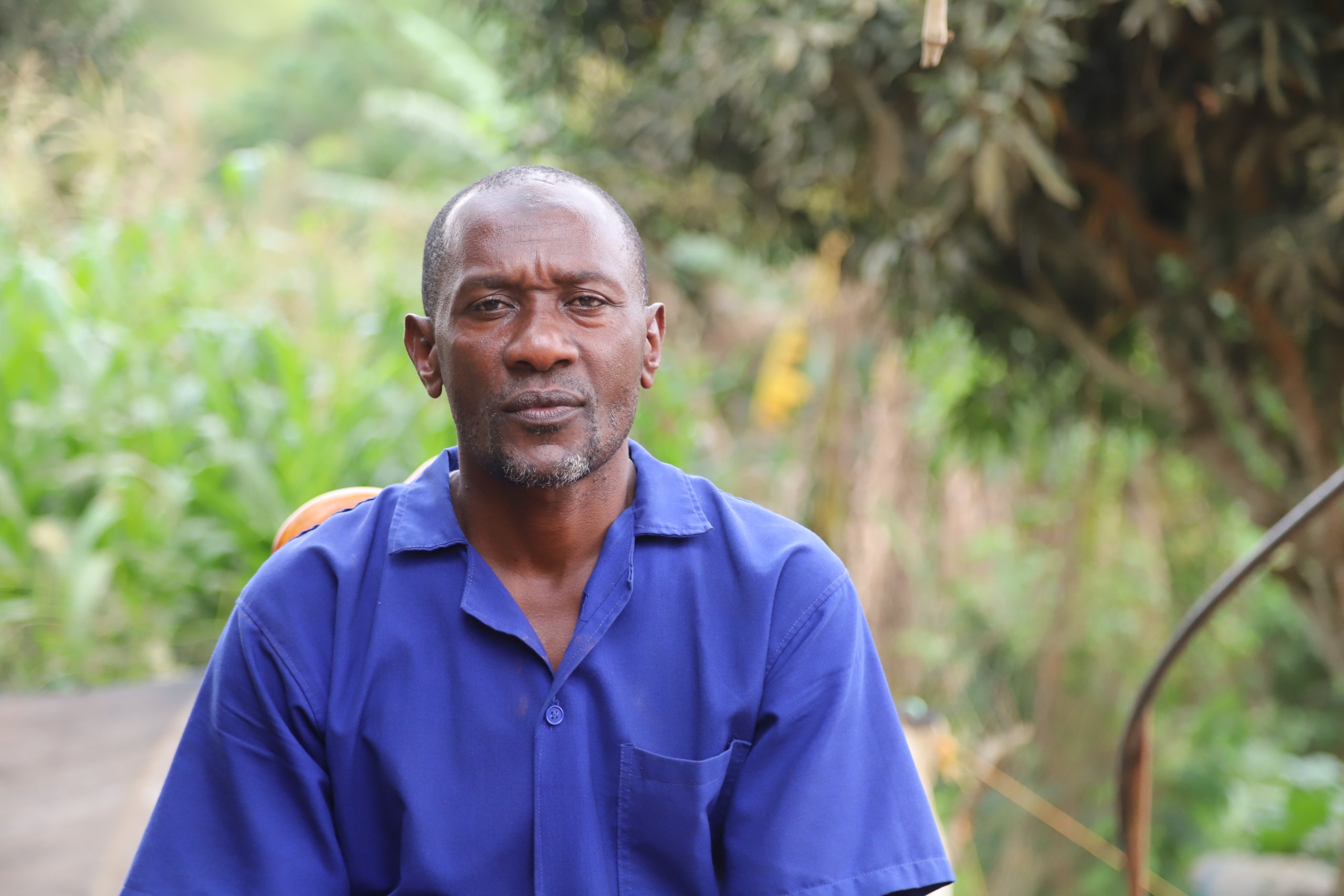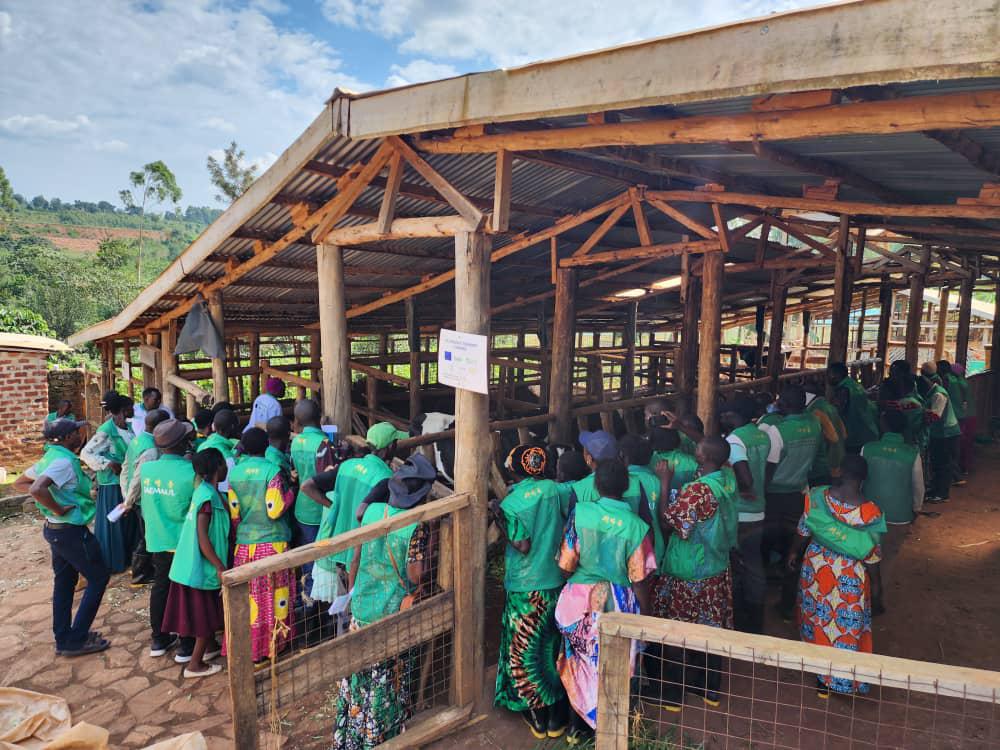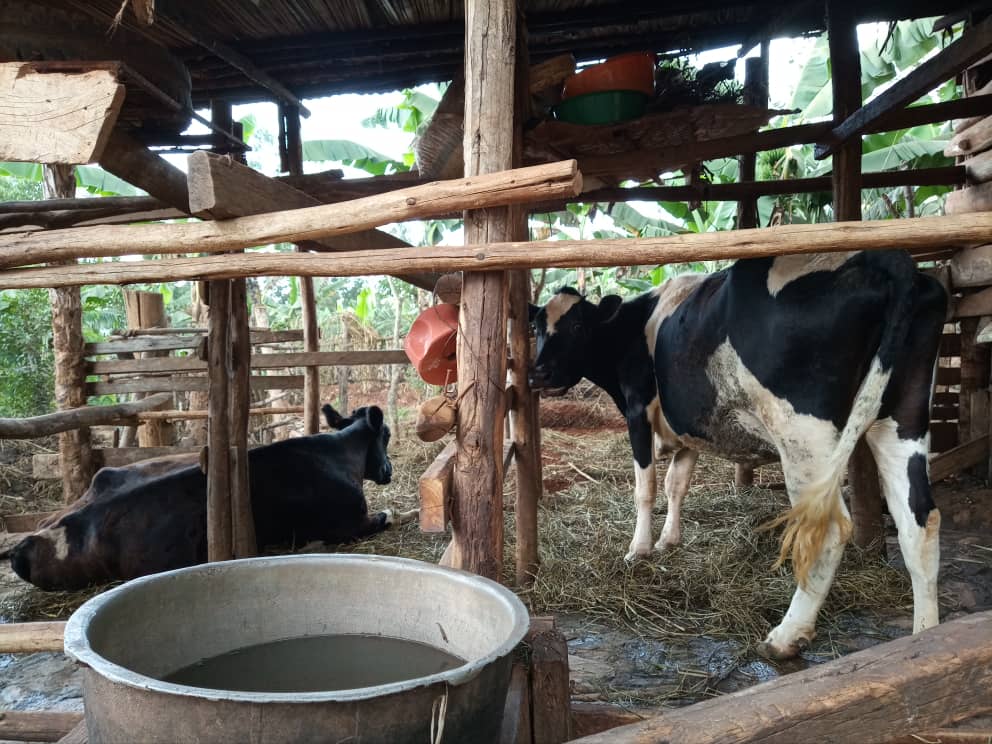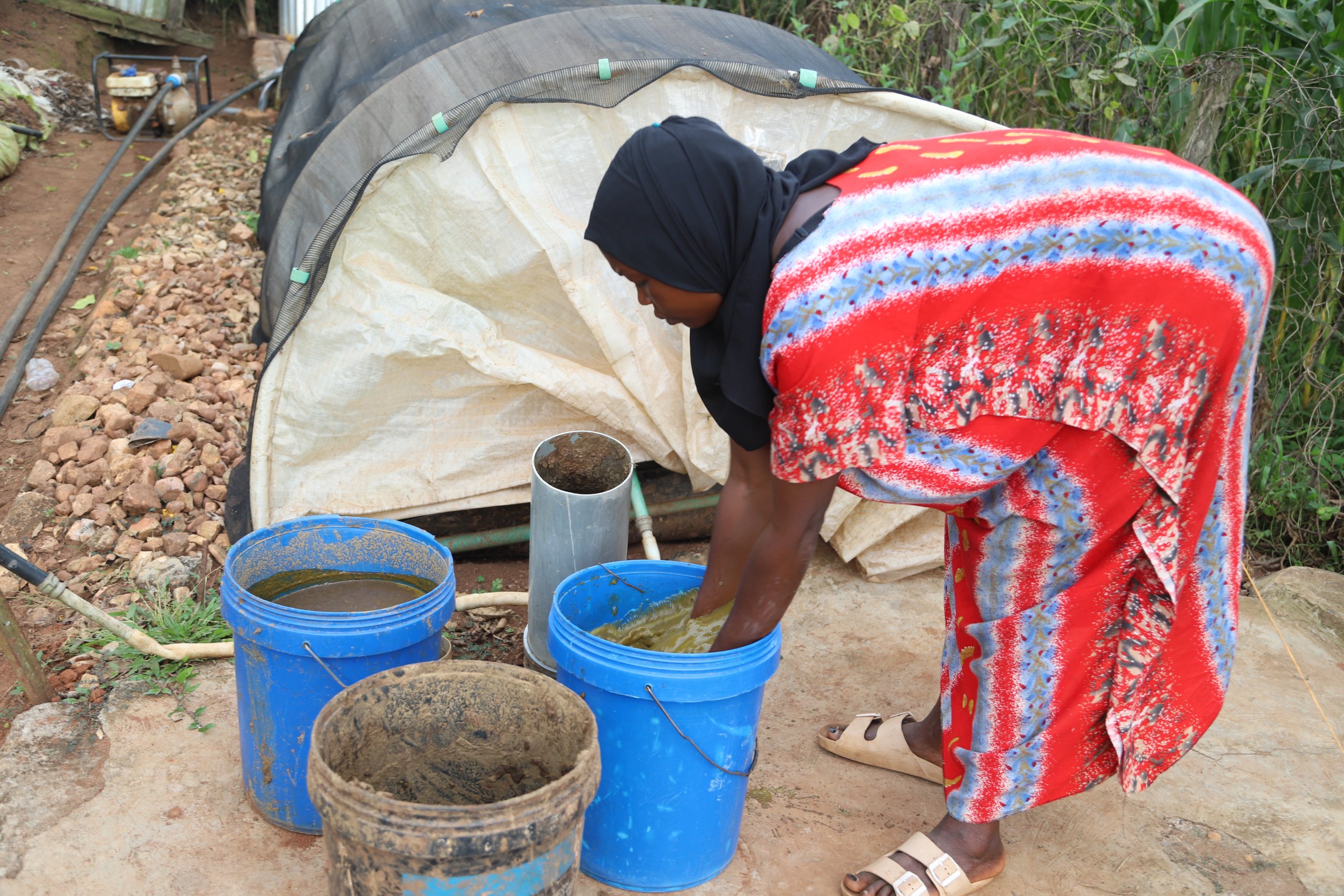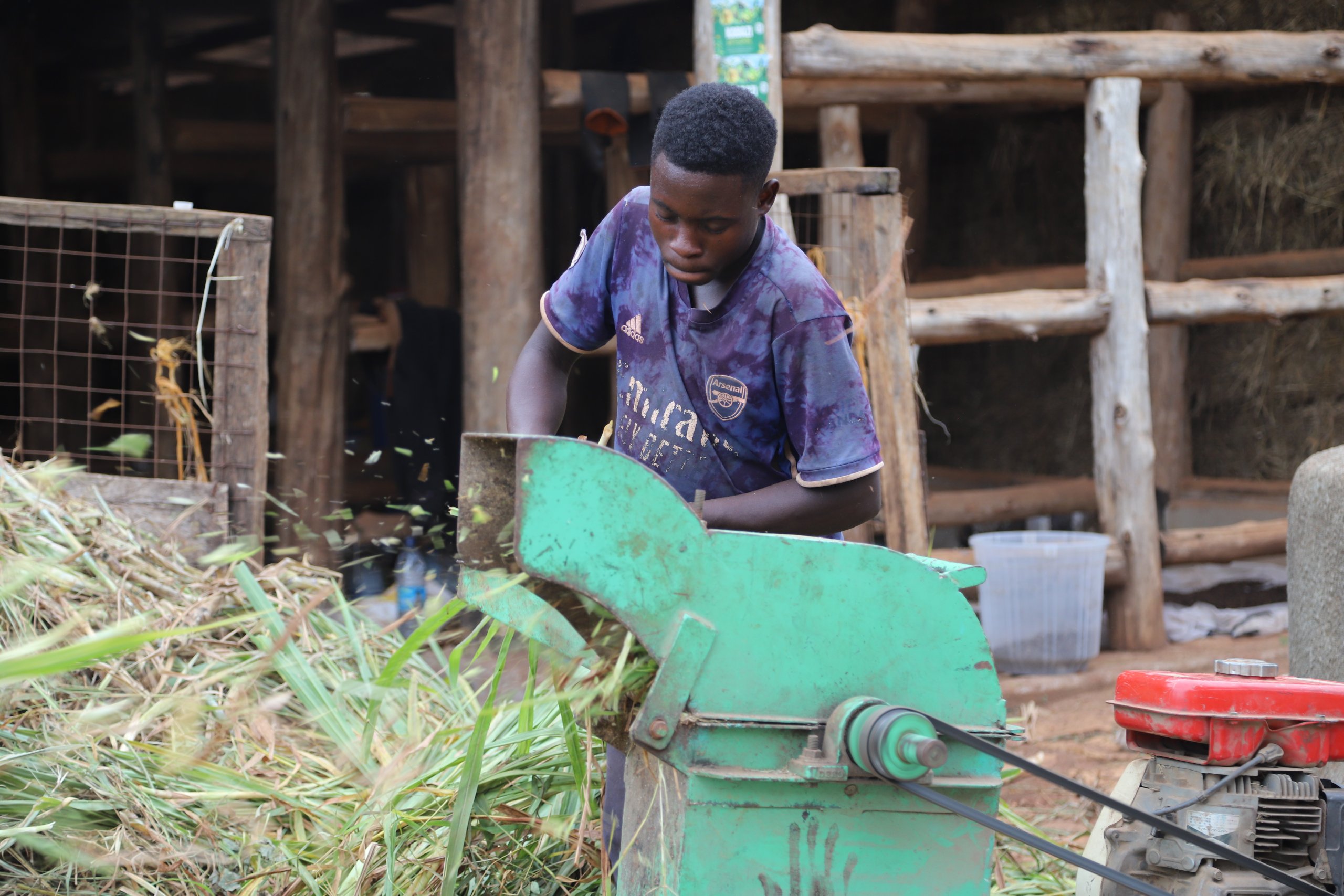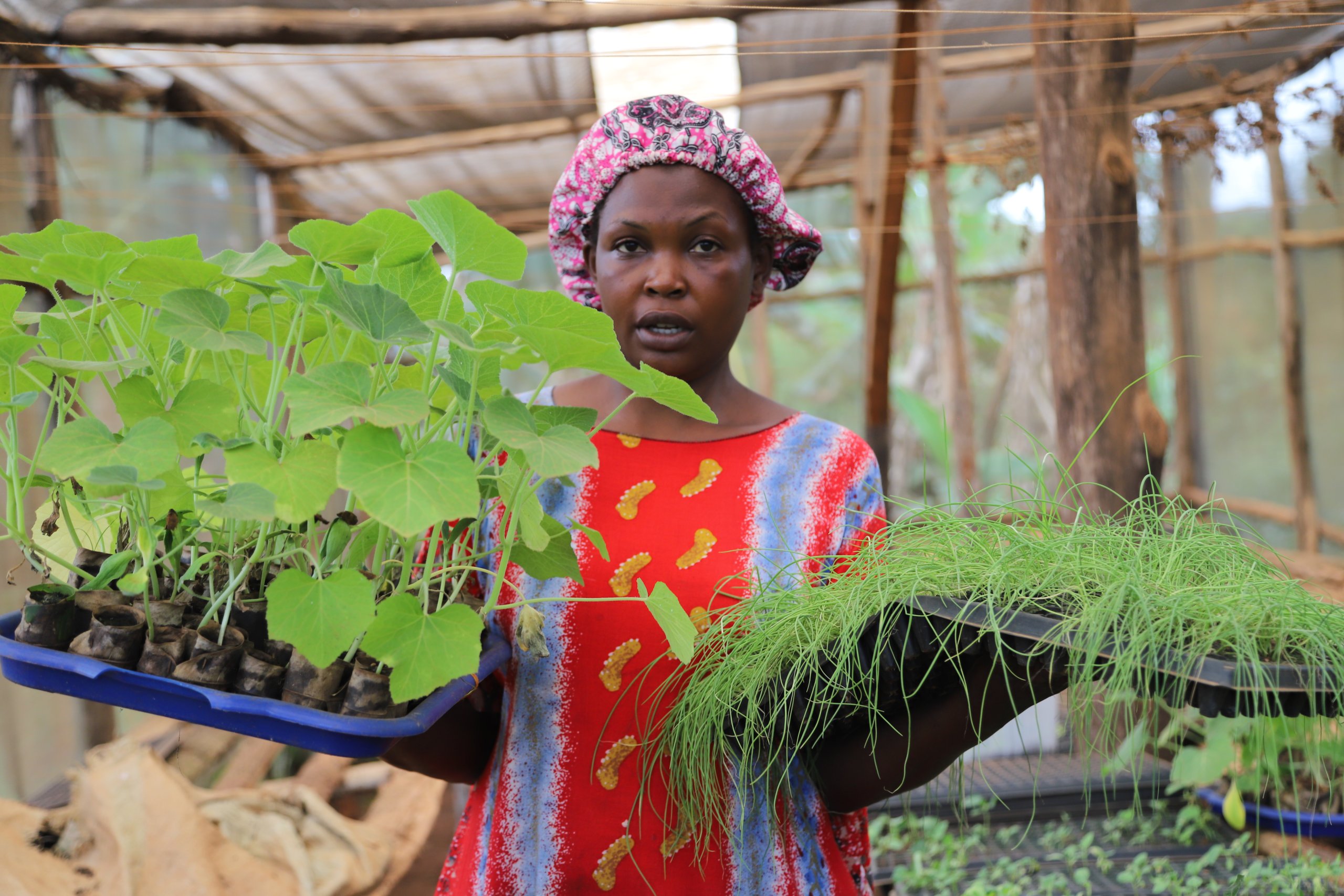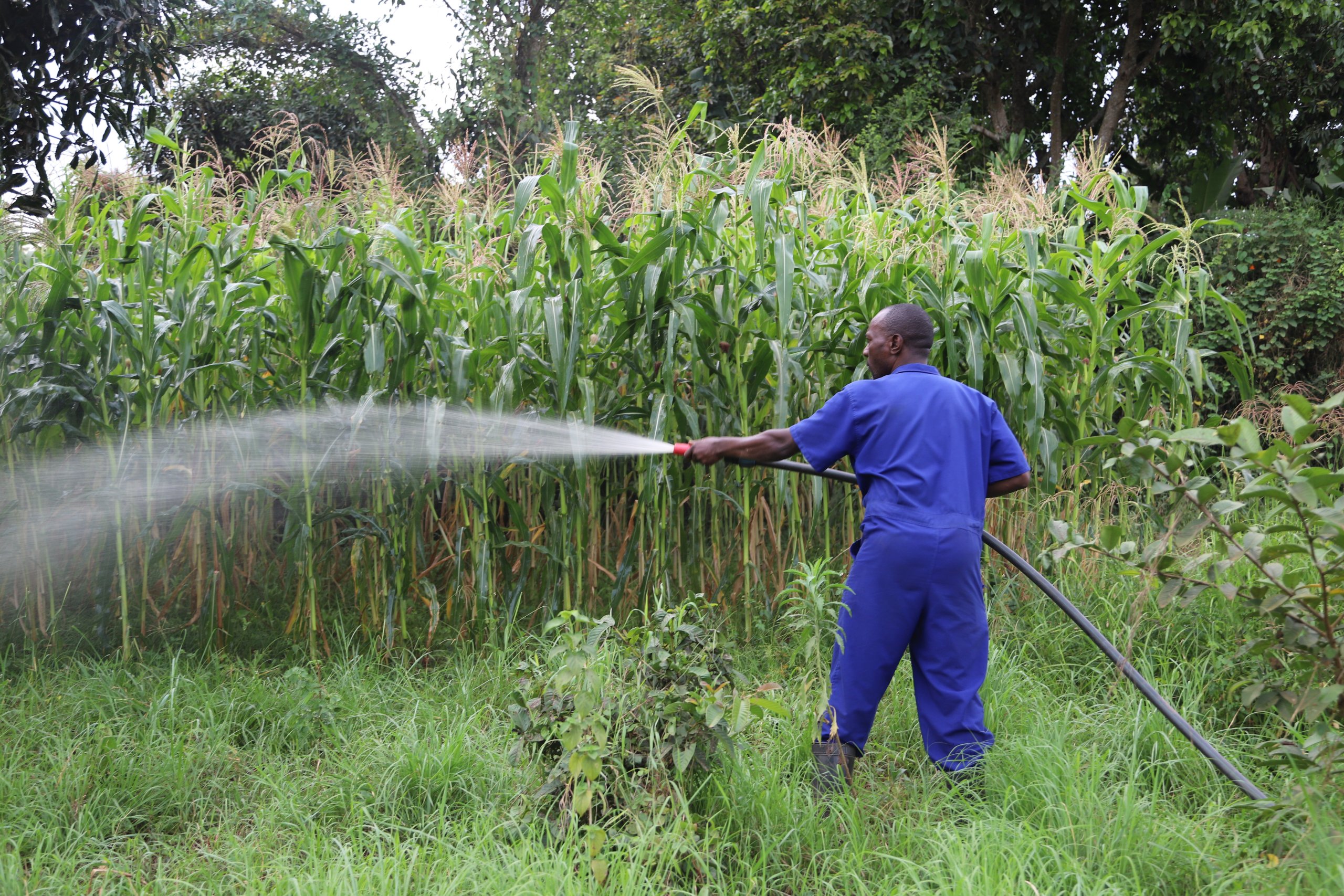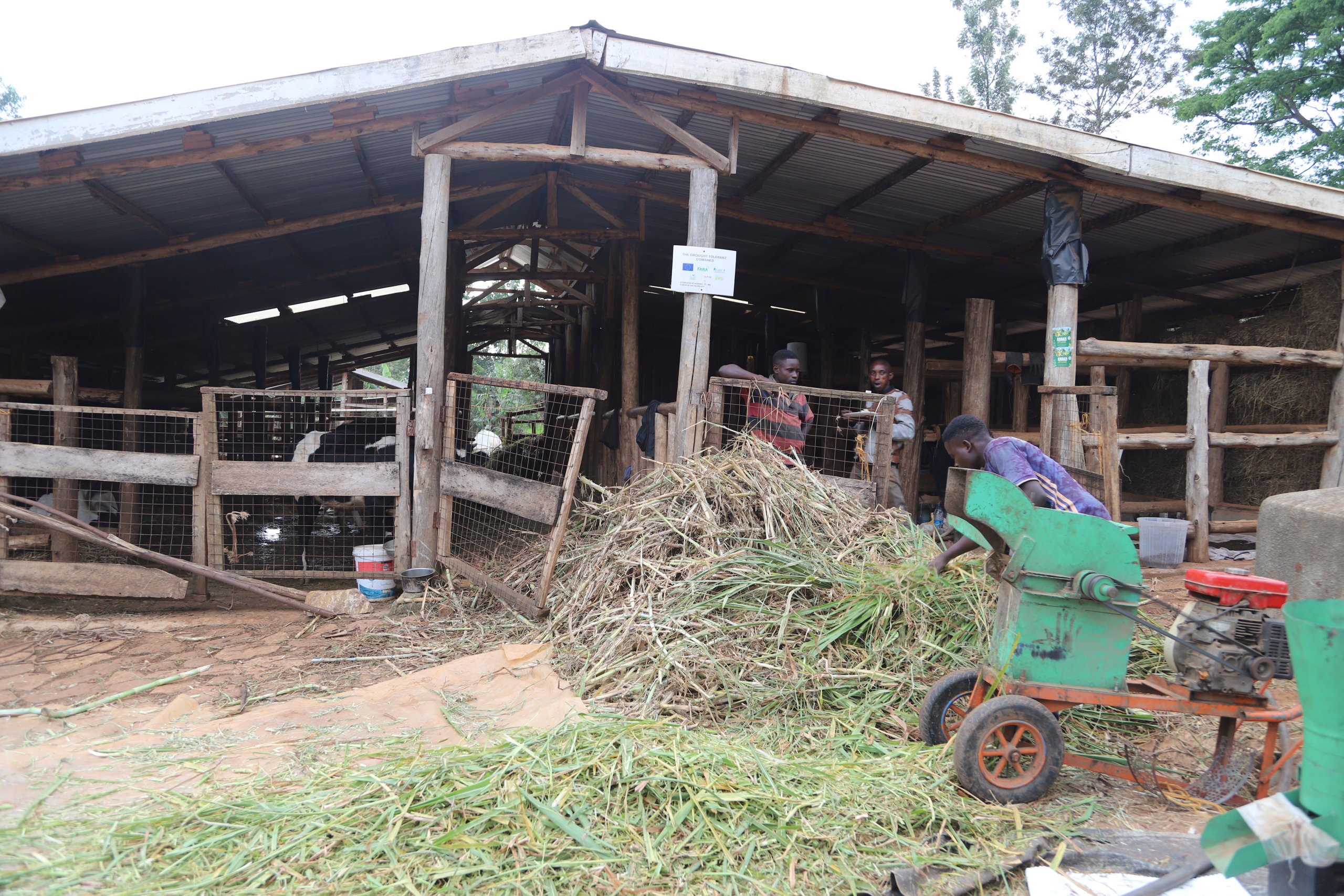From Struggle to Success: How a Dairy Innovation Hub Transformed a Farming Community
BY GENEVIEVE APIO
Kasim Sserugo, 53, is the chairman of Lubanja Mixed Dairy Farm, located in Lubanja Parish, Sekayonyi Subcounty, Mityana District, Uganda.
Under the stewardship of Agriculture, Environment and Ecosystem (AGRENES) Lubanja dairy mixed farmers group was identified as a beneficiary of the Strengthening Agricultural Knowledge and Ecosystem Innovation for Inclusive Rural Transformation in Eastern Africa (AIRTEA) project, focused on “Retaining the Next Generation of Farmers in Agribusiness through Enhanced Knowledge Sharing Platforms along the Dairy and Selected Grain Value Chains.”
Mr. Sserugo was given the opportunity to lead the existing Lubanja Dairy Mixed Farmers group, consisting of 75 members (55 females and 20 males). His farm was evaluated, and through training and capacity-building workshops, an innovative dairy hub was established to serve as a model farm for training other farmers with the vision of equipping them with knowledge and skills in dairy farming and value addition.
“AGRENES met us as casual farm workers. We were raising local breeds of cattle and growing eggplants and hot peppers, which we sold for export before the project, to AGRENES that offered us a market. We had no idea that our farm could become a center of innovation,” recalls Sserugo.
Initially, the farm had only three local cows and a simple cowshed. AGRENES introduced Friesian cows for higher milk production and built a state-of-the-art drought-tolerant cowshed to enhance productivity.
His story is one of resilience, transformation, and community impact, made possible through the support of the(AIRTEA) project.
The AIRTEA project is jointly coordinated by the Forum for Agricultural Research in Africa (FARA), the Association for Strengthening Agricultural Research in Eastern and Central Africa (ASARECA), and the East Africa Farmers Federation (EAFF) and is funded by the European Union (EU), ACP Innovation Fund through the Office of the Organization of African Caribbean and Pacific states (OACPS).
Innovations Introduced by the AIRTEA Project
- Drought-Tolerant Cowshed & Fodder Storage
A modern, drought-resistant cowshed was constructed, enabling farmers to bring their cows to the facility for improved care. A hay storage unit was also established to store dried fodder for use during dry spells, ensuring sustainability.
- Biogas Production & Organic Farming
The project trained Sserugo on value addition in the cowshed through biogas production. The farm now collects and processes silage, which is mixed with water and poured into a biogas digester to produce gas for household cooking.
Additionally, the farm utilizes organic manure from the biogas process as a pesticide. A pump and generator were procured, allowing the farm to spray crops like coffee, maize, onions, and vegetables using organic fertilizers, enhancing farm productivity.
- Technology for Productivity
The AIRTEA project provided various technologies to benefit the farmers, including a chaff cutter, which is used to chop fodder for cattle feed; a pellet maker machine, which produces poultry feeds and organic fertilizer pellets; a briquette maker and solar dryer, which support drying of Azolla for animal feed.
After training in commercial feed production by AGRENES, Sserugo began making poultry feed using dried Azolla and maize brand, which are rich sources of protein and help cut the cost of high-quality poultry feeds in the market. He plans to scale up production for sale.
- Pilot Fodder Bank
A fodder bank was established to train farmers on pasture management for increased milk productivity. Farmers received quality pasture varieties, including Sugar Napier, Pakchong, Brachiaria, and Moroto grasses. Inspired by the project’s impact, Sserugo expanded the fodder bank to two acres, enabling farmers to access nutritious feed for their cattle and even stock some for the dry seasons.
- Seedling Nursery for Quality Crops
The project also supported the setup of a seedling nursery for seed multiplication. Farmers now have access to high-quality seeds for tomatoes, hot peppers, eggplants, pumpkins, onions, and watermelon. Sserugo provides seedlings free of charge, with farmers repaying after harvest. This system prevents farmers from purchasing poor-quality seeds from the market.
- Greenhouse Expansion and Solar pump
Due to increased demand for seedlings, Sserugo and his wife set up another greenhouse for beans and tomatoes.
With a nearby dam, the project supported the farm in acquiring a solar irrigation pump, ensuring a consistent water supply for the farm, greenhouse, and biogas digester.
Impact on Farmers and the Community
The AIRTEA project transformed not just Sserugo’s farm but also the entire farmers’ group. The registered group, which previously lacked structured activities, is now more united and productive. The farmers have undergone over 20 training sessions, with Sserugo also visiting their farms to ensure proper implementation of new techniques.
“We have hosted over 20 different groups on our farm, making the project highly visible and increasing our earnings. Farmers now buy seedlings from us in large quantities, private sector companies also buy milk from us” he says.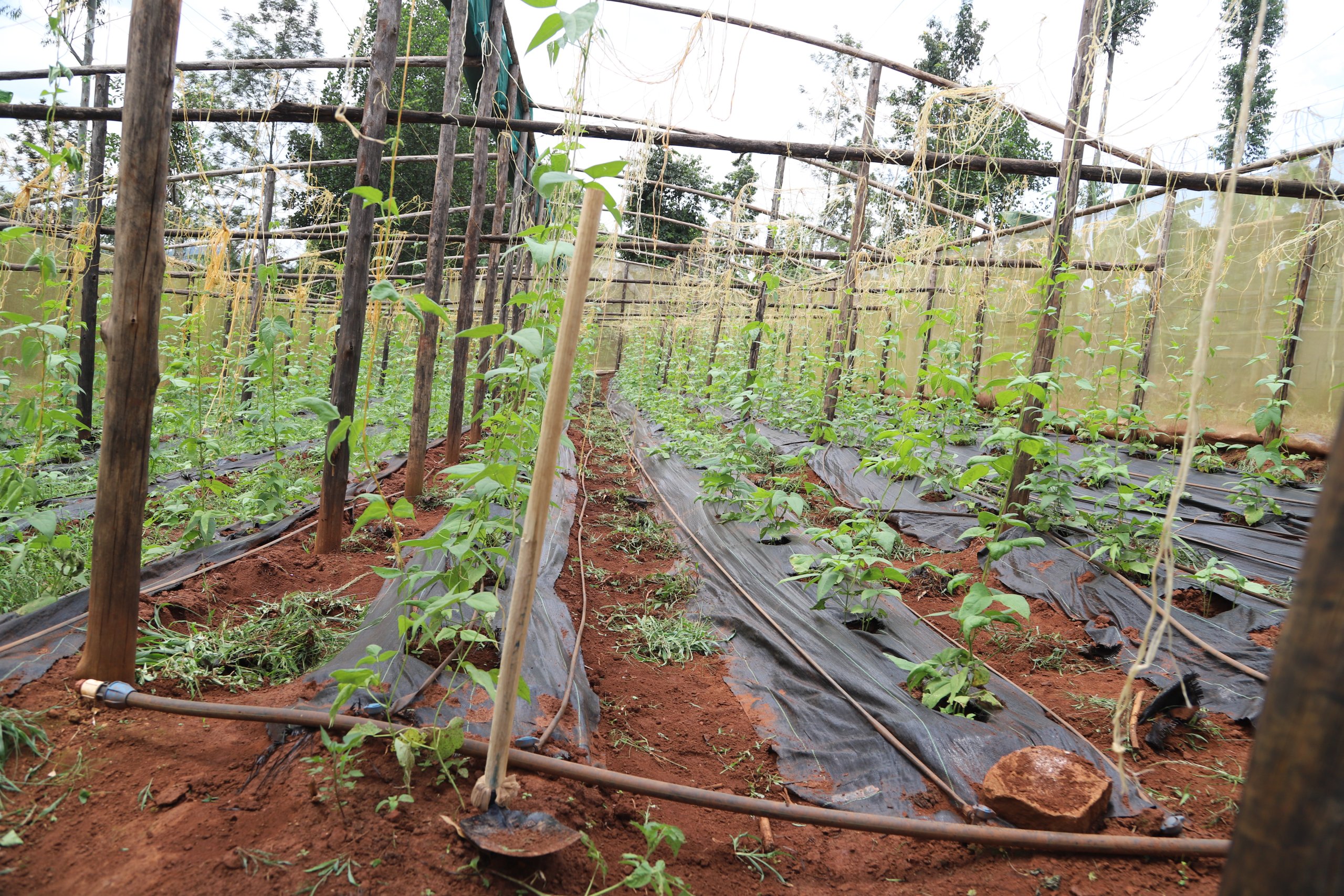
Market Access and Increased Earnings
Before AGRENES’ intervention, the farmers only sold their produce in local markets, often at low prices. Now, the group sells collectively in bulk, securing better prices. For example, previously, a basin of hot pepper sold for UGX 12,000, but today, a 4kg box sells for UGX 20,000–40,000. Farmers now sell to AGRENES directly, eliminating middlemen who used to exploit them.
Economic Growth and Employment
With increased income, Sserugo has expanded his greenhouse, established a seedling raiser, and ventured into coffee farming. Last season, he harvested six bags of coffee, earning UGX 4.8 million (1250USD), which helped pay school fees for his children.
The farm has also created employment opportunities, hiring three laborers, one managing the cowshed and two working in the gardens. This has significantly boosted farm productivity.
A Future of Possibilities
Thanks to the AIRTEA project, Lubanja Mixed Dairy Farm has become a beacon of innovation, sustainability, and prosperity. Farmers in the region have gained knowledge, resources, and market access, enabling them to improve their livelihoods.
“We started as casual farm workers, but today, we are model farmers and trainers. The project has transformed our lives, and we are committed to passing on this knowledge to future generations.”
Sserugo’s journey exemplifies how strategic interventions, knowledge sharing, and access to technology can empower farmers to build sustainable agribusinesses, ensuring food security and economic growth for entire communities.
Through the AIRTEA project ASARECA, FARA, and EAFF have mobilized the capacities and resources of over 50 organizations to implement agriculture research and innovation projects by 11 consortia that include public agriculture research institutions, public and private universities, private sector firms, farmer organizations, Ministries of Agriculture, and local governments.
Drought-tolerant cow shed set up with funding from the European Union for the Lubanja Dairy Mixed farmers group
Watch Success story here: Empowering Uganda’s Next Generation Farmers in Agribusniess I mini documentary
Pictures by Genevieve Apio ( ASARECA)

